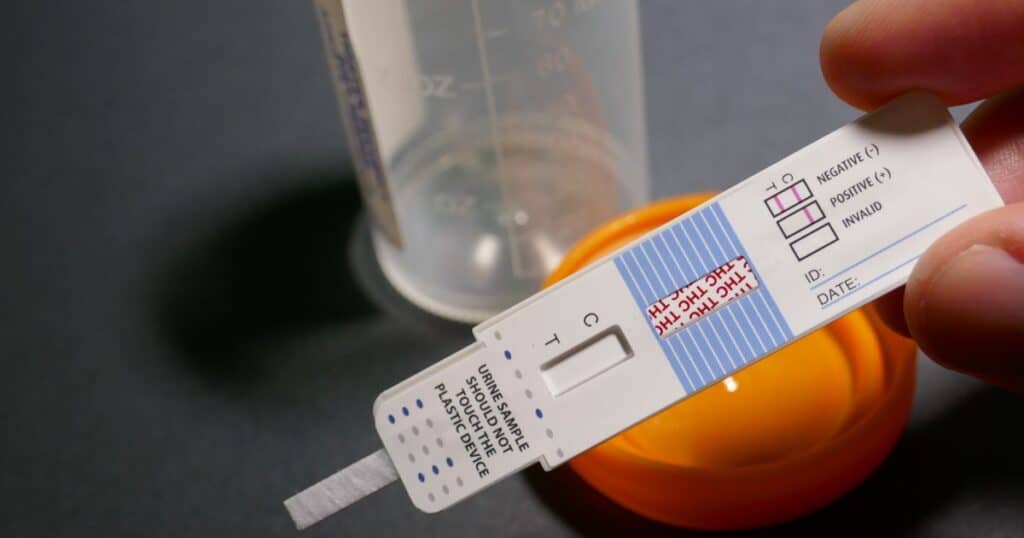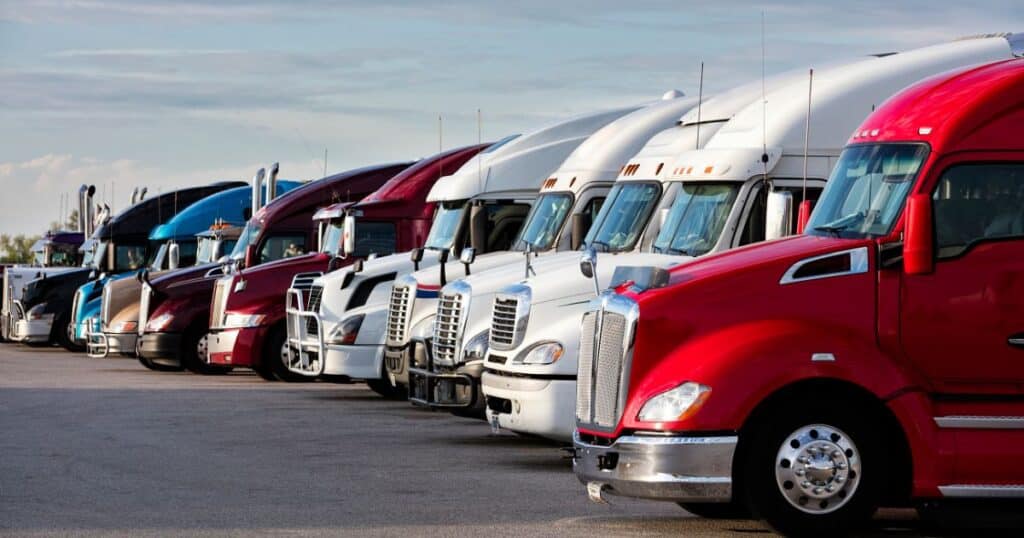Marijuana legalization sweeping across the country is shifting the landscape of drug testing, not only changing the legality and social acceptance of cannabis but also impacting the employment and transportation sectors.
With the realization that outmoded cannabis testing is thinning the ranks of licensed commercial truck drivers, the conversation around the need for more nuanced drug policies has never been more urgent.
Decline in Positive Drug Tests Among Truck Drivers
Recent data indicates a drop in the number of positive drug tests for marijuana and various other substances amongst truck drivers, a decline that has plummeted more than 10% from the preceding year.
While this statistic may suggest a positive trend in drug usage on the surface, there’s a more alarming development. There has been a 40% increase in reported drug test refusals. This surge in avoidance tactics is concerning. Tactics include failing to show up for random tests or leaving the testing facility prematurely. It’s signaling a latent narrative.
“We’ve observed that even though the number of positive drug tests dropped for the first time in relation to the previous calendar year, the number of overall drug violations reported to the Clearinghouse continued to increase [68,229 drug violations in 2023 compared with 67,775 in 2022],” the Federal Motor Carrier Safety Administration (FMCSA) said in a statement to Transport Topics.
The agency added, “The overall rise in drug violations in 2023, even though there are fewer positive drug tests, is attributed to nearly a 40% increase in reported drug test refusals — 9,214 in 2022 versus 12,804 in 2023. Drug test refusals include employer reported refusals like failing to show up for a random test, or leaving a test collection facility after a test has begun but before it’s complete.”
Missing the Return-to-Duty Program
A notable finding from the Federal Motor Carrier Safety Administration (FMCSA) is the significant number of CDL drivers who choose not to participate in return-to-duty programs after a positive drug test. The data highlights that over 158,000 drivers are still on a prohibited driving status, even though there are available programs to help them return to work.
Interestingly, it would seem that many of these drivers with prohibited driving statuses are transitioning to careers that do not completely restrict their ability to perform everyday tasks for using a legal substance. This trend, along with the increasing instances of unreported drug test refusals, underscores the industry’s need for thoughtful reevaluation and potential reform.
Massachusetts Struggles with CDL Hiring Due to Cannabis Testing
In the state of Massachusetts, finding qualified individuals to fill critical positions requiring a Commercial Driver’s License (CDL) has become increasingly challenging. A significant hurdle that exacerbates this problem is the current approach to cannabis testing.
“The other problem with CDLs is pot,” said Springfield Department of Public Works Director Christopher Cignoli in an article by MassLive. “Someone can go out and drink heavily Friday night and they will pass a drug test on Monday. Someone who takes two puffs (of cannabis), they are delayed (from working) for 45 days.”
In the Springfield Department of Public Works, 18 of the 137 available positions are vacant and many of those require CDLs. That means it takes longer to plow, sweep streets and do other work
“It 100% affects our driver pool,” said Jeremy Procon, owner of Interstate Towing in Chicopee. “seems everyone everywhere is smoking or eating brownies and cookies and some are using it for a sleep aid.”
This issue extends beyond Massachusetts and highlights a national challenge. The legalization of cannabis in numerous states has led to a driver shortage for heavy machinery operations due to stringent drug testing standards.
Reflecting on this issue, Paul Armentano, Deputy Director of NORML, highlights a widespread problem across the United States.
“It is a long-standing issue, Department of Transportation statistics say 100,000 CDL drivers have tested positive for marijuana since 2020 and only 25% have sought to reapply for their licenses.”
Testing Not Keeping Up with Marijuana Legalization
Critics say the primary testing methods, such as urine analysis, fail to accurately determine current impairment from cannabis.
These methods can detect cannabis use from days to months prior, failing to indicate whether an individual is impaired at the time of testing. Blood tests are somewhat better in detecting recent use, but they still can’t determine impairment at the time of testing and are much more intrusive.
Despite the shift towards legalizing cannabis and its widespread acceptance, the federal approach to drug testing, especially for CDL holders, remains unchanged.
Federal guidelines do not allow any exceptions for medical marijuana use, even with a doctor’s prescription. This rigid stance highlights the need for a comprehensive review and potential update of drug testing policies to reflect current understanding and practices regarding cannabis use and impairment.
Cannabis Legalization and the Looming Driver Shortage
Marijuana legalization in 24 states and Washington, D.C. acts as a double-edged sword for the commercial driving sector. The growing acceptance of cannabis could deter people from pursuing a CDL-based career because of strict drug policies.
On the other edge lies the exacerbation of an existing driver shortage, with eligible candidates opting for professions devoid of stringent drug testing measures.

Balancing marijuana legalization with commercial driving is a complex matter that needs careful consideration of drug testing policies. Finding a balance between an employer’s need for employee sobriety and an individual’s right to partake in legal activities is essential.
Current drug tests, especially for cannabis, don’t align with today’s standards, often unfairly excluding skilled individuals from the job market. The solution could be new testing methods that focus on safety and job performance rather than penalizing personal choices made outside of work. With open discussion and forward-thinking policies, the transportation sector can navigate legalization while maintaining safety and responsibility.

















